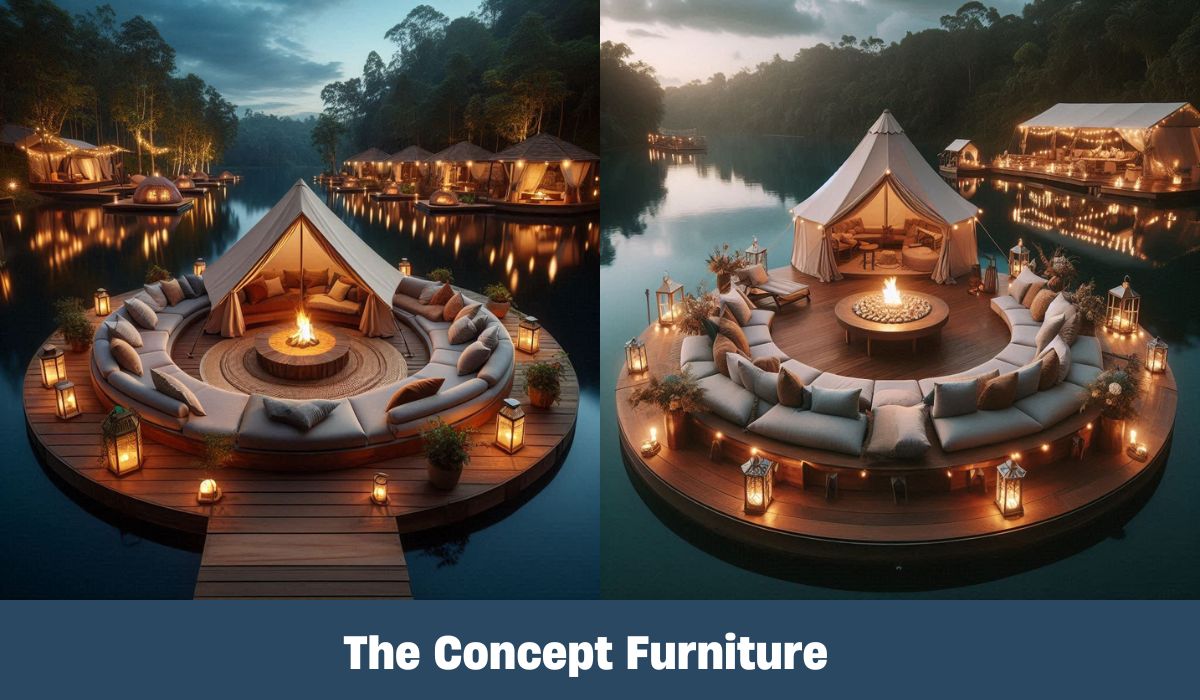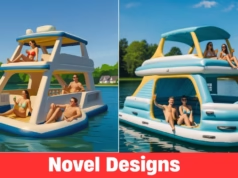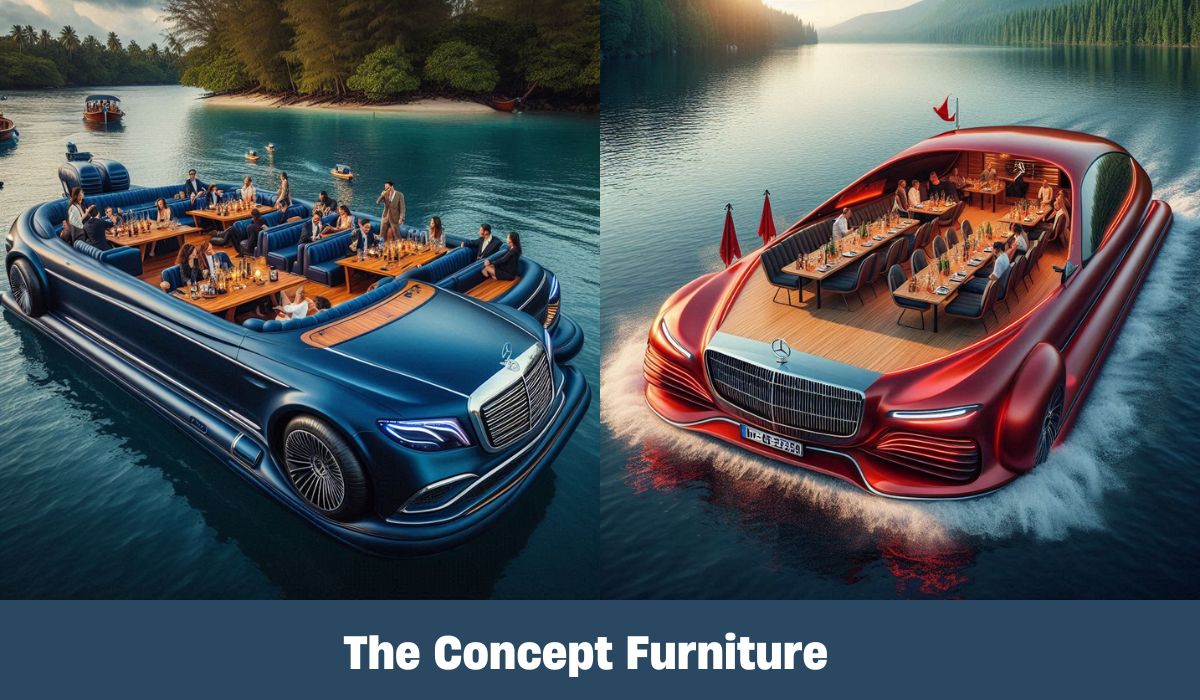Camping has long been a beloved pastime that allows individuals to immerse themselves in the great outdoors, but what if you could take that experience to an entirely new level? Enter floating campsites. These innovative and enchanting escapes allow campers to set up camp on water, combining the tranquility of nature with the thrill of being on the move. From serene lakes to winding rivers, floating campsites provide an unparalleled opportunity to connect with nature while engaging in a variety of water-based activities. In this article, we will explore the captivating world of floating campsites, delving into their history, benefits, types, popular locations, essential gear, and so much more.
Introduction to Floating Campsites
Floating campsites are an exciting evolution of traditional camping, offering a unique twist on outdoor adventures. Imagine setting your tent atop a buoyant platform or spending the night aboard a cozy houseboat. This concept not only enhances the camping experience but also opens up new avenues for exploration and recreation on water.
Definition and Concept of Floating Campsites
Floating campsites can be defined as temporary accommodations established on water bodies, such as lakes, rivers, or coastal areas. They vary widely in design and functionality, ranging from simple floating platforms or rafts to fully equipped houseboats. The essence of floating campsites lies in their ability to create a mobile base for outdoor enthusiasts seeking adventure beyond conventional ground-based camping.
The appeal of floating campsites is rooted in the unique combination of comfort and connection with nature they provide. Campers can enjoy the gentle lapping of waves against their “doorstep,” watch sunrises reflecting off the water’s surface, and listen to the calming sounds of waterfowl in the vicinity—all from the comfort of their floating haven.
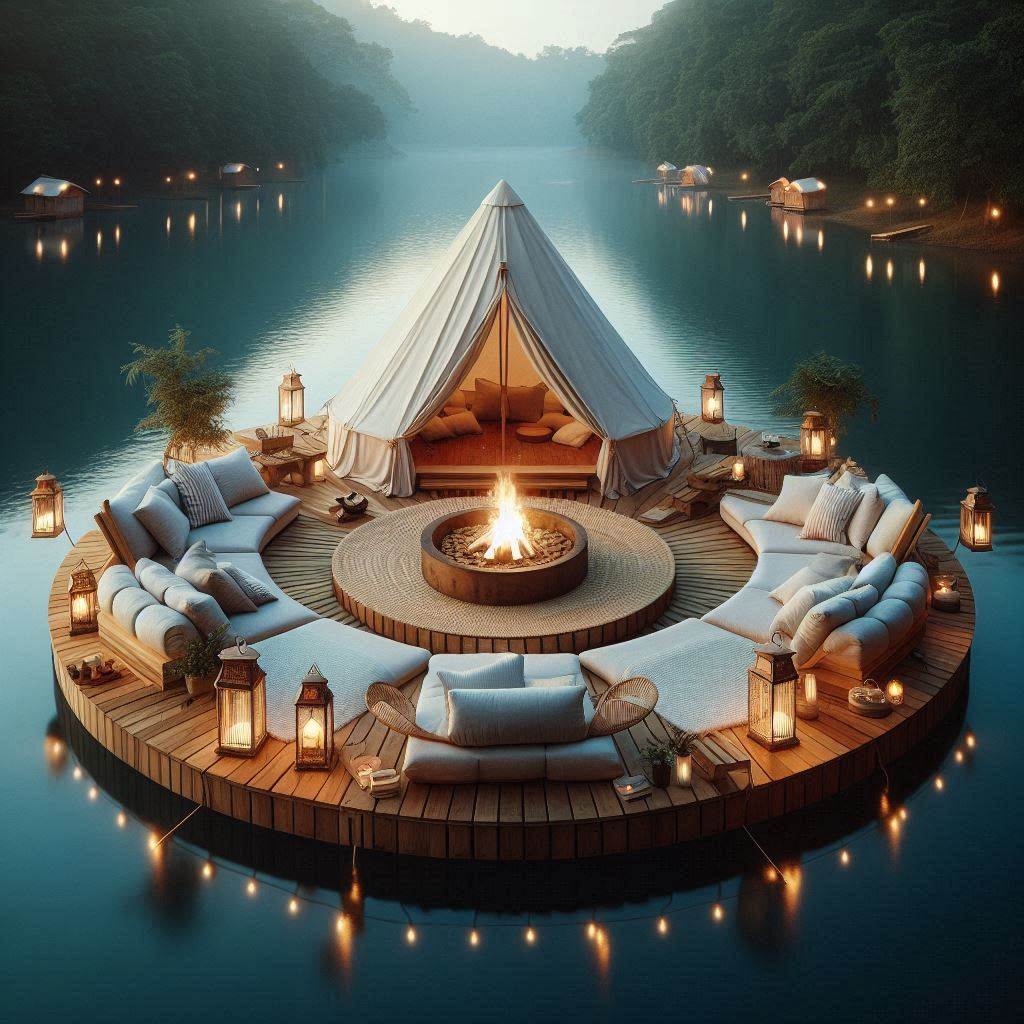
Historical Background and Evolution
The idea of floating accommodation isn’t entirely novel. It has ancient roots in various cultures around the globe, where communities have utilized boats and floating structures for living and resource gathering. However, as recreational activities gained popularity in modern times, the notion of floating campsites began to evolve significantly.
In recent years, advancements in materials and design have led to the emergence of diverse options for floating camping experiences. Camping enthusiasts now have access to specialized gear designed to enhance safety and comfort while allowing them to fully embrace their surroundings. The rise of eco-tourism and a growing interest in sustainability have further fueled the popularity of floating campsites as an alternative way to experience the beauty of nature.
Benefits of Floating Campsites
Floating campsites offer a myriad of benefits that make them an enticing option for adventurous travelers and nature lovers alike. From enhancing one’s relationship with nature to providing unique recreational opportunities, these campsites elevate the camping experience to new heights.
Connection with Nature
There’s an undeniable serenity that comes with being surrounded by water. Floating campsites facilitate a deep connection with the natural world, allowing campers to experience their environment in an intimate way.
Sleeping under the stars with the gentle sway of water beneath you creates a sense of calmness that is hard to replicate elsewhere. The sights and sounds of nature—such as birds singing or fish jumping—become part of your nightly soundtrack, fostering a greater appreciation for the ecosystem surrounding you.
Moreover, being situated directly on water often provides unmatched views of sunrises and sunsets, creating stunning backdrops for your camping experience. This close proximity to nature encourages a mindful approach to Floating Campsites, prompting individuals to reflect on their impact and the importance of conservation.
Unmatched Camping Experience
Floating campsites provide a truly distinctive camping experience that cannot be matched by traditional campsites. With the integration of water into the camping experience, there are limitless possibilities for adventure.
Imagine waking up to the sound of waves gently rocking your Floating Campsites; breakfast could be enjoyed while watching wildlife frolic in the nearby shallows. Then, after a morning of fishing or swimming, you might choose to paddle around in a kayak or stand-up paddleboard, exploring hidden coves and pristine shores.
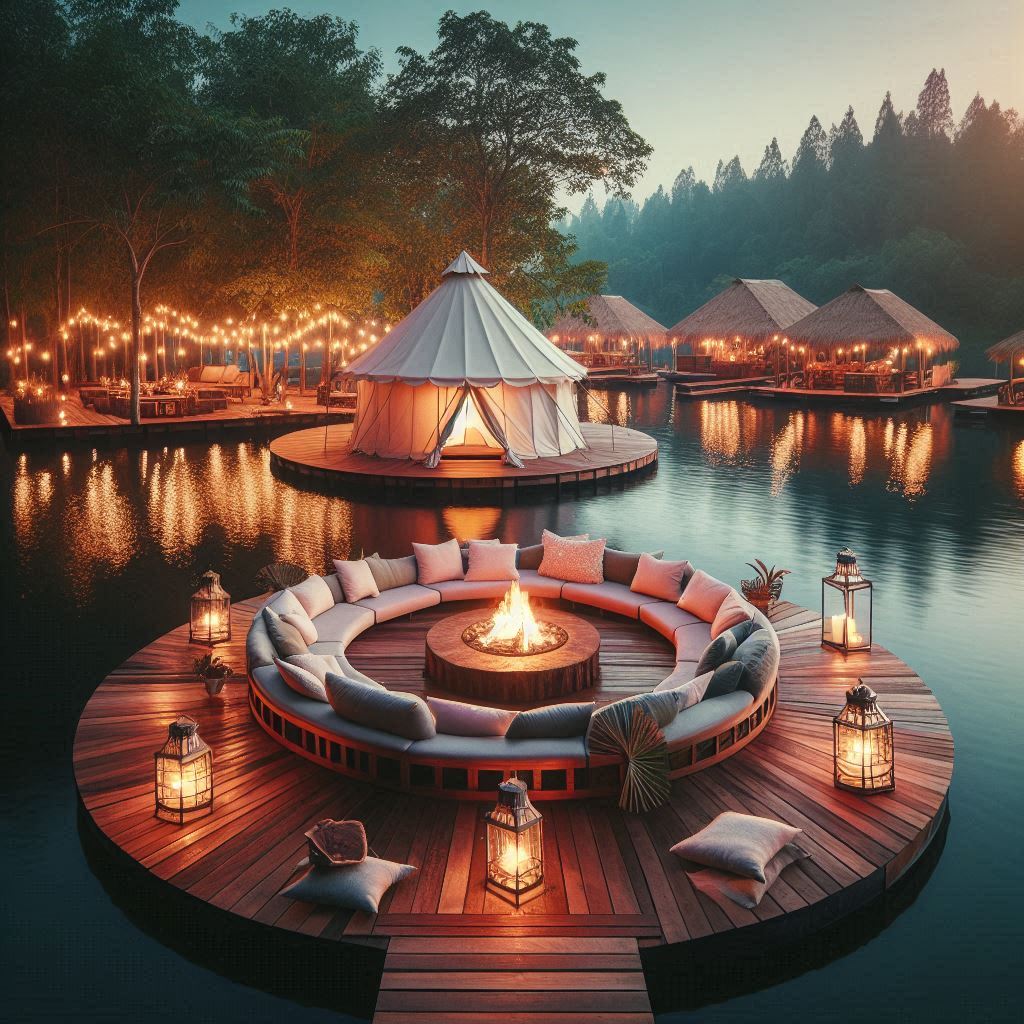
The versatility of floating campsites allows for spontaneous excursions and explorations that ground-based camping simply cannot offer. Whether you’re interested in relaxation or thrilling water sports, floating campsites cater to a wide range of preferences, ensuring that each camper leaves with cherished memories.
Opportunity for Water Activities
One of the most compelling aspects of floating campsites is the plethora of water-based activities available. Unlike traditional camping sites located inland, floating campsites provide immediate access to various aquatic recreational opportunities.
Whether it’s fishing, swimming, kayaking, or even wakeboarding, floating campsites enable outdoor enthusiasts to indulge in their favorite water activities without having to travel far. Fishing enthusiasts can cast their lines right off their floating platforms, while families can enjoy quality time splashing in the water.
Additionally, floating campsites are often located near pristine natural areas, making them ideal launching points for day trips to secluded beaches or wildlife observation spots. For those who thrive on adventure, floating campsites open doors to unforgettable aquatic experiences.
Types of Floating Campsites
When it comes to floating campsites, there’s no one-size-fits-all solution. Various types cater to different preferences, allowing campers to choose the setup that best fits their needs.
Houseboats
Houseboats are perhaps the most well-known type of floating campsite, providing a comfortable, fully-equipped living space on the water. These vessels come in a range of sizes, accommodating everyone from solo travelers to large family gatherings.
With amenities that can include kitchens, bathrooms, and multiple sleeping quarters, houseboats offer the luxury of traditional Floating Campsites while immersing occupants in an idyllic aquatic environment. Many houseboat rentals allow campers to navigate along picturesque waterways, opening up possibilities for exploration and adventure.
The ability to dock at different scenic locations adds another layer of flexibility to a houseboat camping experience. Picture spending the day anchored near a secluded cove, swimming and relaxing in the water, before moving to a stunning sunset spot for the night.
Rafts and Pontoon Boats
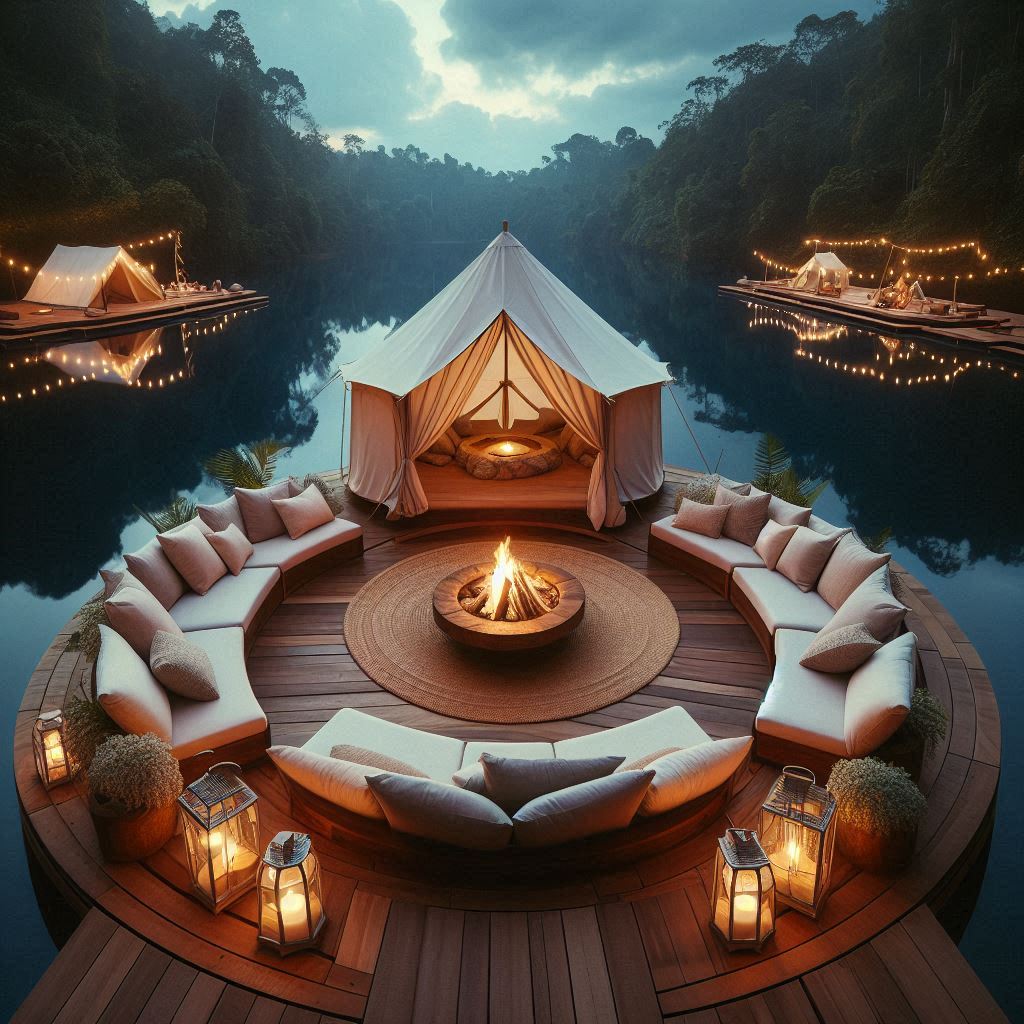
For those seeking a more minimalist experience, rafts and pontoon boats provide an excellent alternative to houseboats. These Floating Campsites platforms can accommodate tents or simply serve as a base for camping gear.
Rafts and pontoon boats are often easier to transport and set up than larger houseboats, making them accessible for adventurers looking for spontaneous outings. Floating Campsites can anchor their raft or pontoon in desirable locations and enjoy all the benefits of floating camping with fewer frills.
Additionally, these setups encourage interaction with the water itself, as many campers tend to fish or swim directly from their Floating Campsites platforms. The simplicity of rafts and pontoons allows campers to focus on enjoying their surroundings rather than dealing with the complexities of a larger vessel.
Floating Tents and Platforms
A more unconventional option is the Floating Campsites tent or platform. These setups utilize specially designed inflatable platforms or rafts that can support tent camping directly over the water.
Floating tents create a unique atmosphere by allowing individuals to pitch their tents on a sturdy surface situated above the water. The experience feels similar to traditional camping but with the added allure of being surrounded by open water. This setup appeals particularly to those who wish to maintain the rustic feel of Floating Campsites while also embracing the novelty of a floating environment.
Floating platforms can vary in size and structure, with some being portable enough for day trips while others may function as base camps for extended stays. The creativity of this option means campers can customize their setup to suit their preferences and style.
Popular Locations for Floating Campsites
While floating campsites can be found in various regions, certain locations are renowned for their breathtaking scenery and vibrant ecosystems. These areas offer the perfect backdrop for a floating escape into nature.
Lakeside Destinations
Lakeside locations are among the best for floating campsites due to their calm waters and stunning views. Popular lakes like Lake Tahoe, Flathead Lake, and Crater Lake offer ample opportunities for both relaxation and recreation.
The tranquil waters of lakes provide ideal conditions for Floating Campsites platforms and houseboats, enabling visitors to soak in the peaceful ambiance of their surroundings. Campers can enjoy fishing, swimming, or simply lounging on their floating setup while taking in the beauty of expansive lake views.
Many lakeside destinations also boast nearby hiking trails, cultural landmarks, or other attractions, allowing campers to extend their adventures beyond the water. With plenty of scenic spots to discover, lakeside camping promises unforgettable experiences immersed in nature.
Coastal Areas
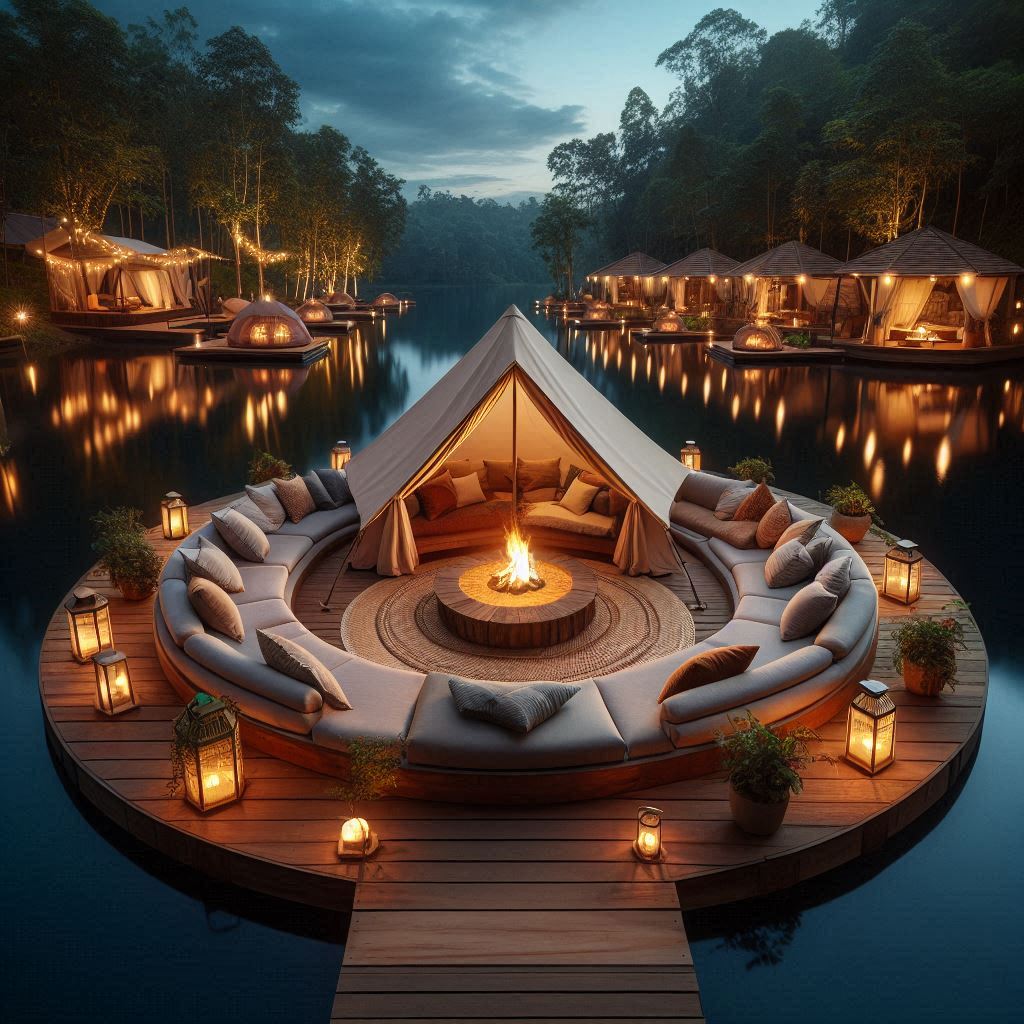
Coastal areas present an incredible opportunity for floating campsites, blending the charm of oceanic vistas with the thrill of water-based activities. Destinations like the Florida Keys, the Pacific Coast, and the Caribbean islands invite adventurous souls to explore vibrant marine environments.
Houseboat rentals are especially popular in coastal regions, allowing campers to navigate through sparkling waters, coral reefs, and coastline scenery. The sound of crashing waves and salty air makes for an invigorating camping experience unlike any other.
Coastal floating campsites also provide access to a multitude of water sports, including snorkeling, scuba diving, and surfing. Campers can embark on exciting adventures during the day and return to their floating homes to relax under starlit skies.
River Systems
River systems represent yet another enticing location for floating campsites, offering dynamic landscapes that change with every bend of the waterway. Rivers such as the Colorado River, Snake River, and Mississippi River provide ample opportunities for exploration.
Floating campsites along rivers typically consist of rafts, kayaks, or pontoon boats that allow for easy navigation. These setups provide a unique perspective on the riverbanks and surrounding flora and fauna while enabling campers to engage in fishing, swimming, or simply drifting down the current.
Rivers often have designated camping sites along their banks, where campers can disembark to hike or explore the surrounding terrain. The ever-changing scenery and abundant wildlife make river camping an exhilarating and immersive experience.
Essential Gear for Floating Campsite Camping
Before embarking on an adventure at a floating campsite, proper preparation is crucial. Having the right gear ensures safety, comfort, and enjoyment throughout the journey.
Safety Equipment
Safety should always be the top priority when Floating Campsites on water. Essential safety equipment includes life jackets, floatation devices, and first aid kits. Life jackets are mandatory for anyone participating in water activities, including swimming or boating.
It is also wise to equip yourself with a reliable communication device, such as a waterproof phone case or walkie-talkies, especially if venturing into remote areas. Additionally, bringing a whistle or signaling device can help alert others in case of emergencies.
Understanding weather patterns and keeping a weather radio handy is vital when Floating Campsites on water, as conditions can change rapidly. Awareness of safety protocols, such as knowing how to respond to capsizing or emergency evacuations, can significantly enhance the overall experience.
Cooking Supplies
Cooking at a floating campsite can be a delightful experience, provided you have the right supplies. While some houseboats may come with built-in kitchens, campers utilizing rafts or tents will need portable cooking equipment.
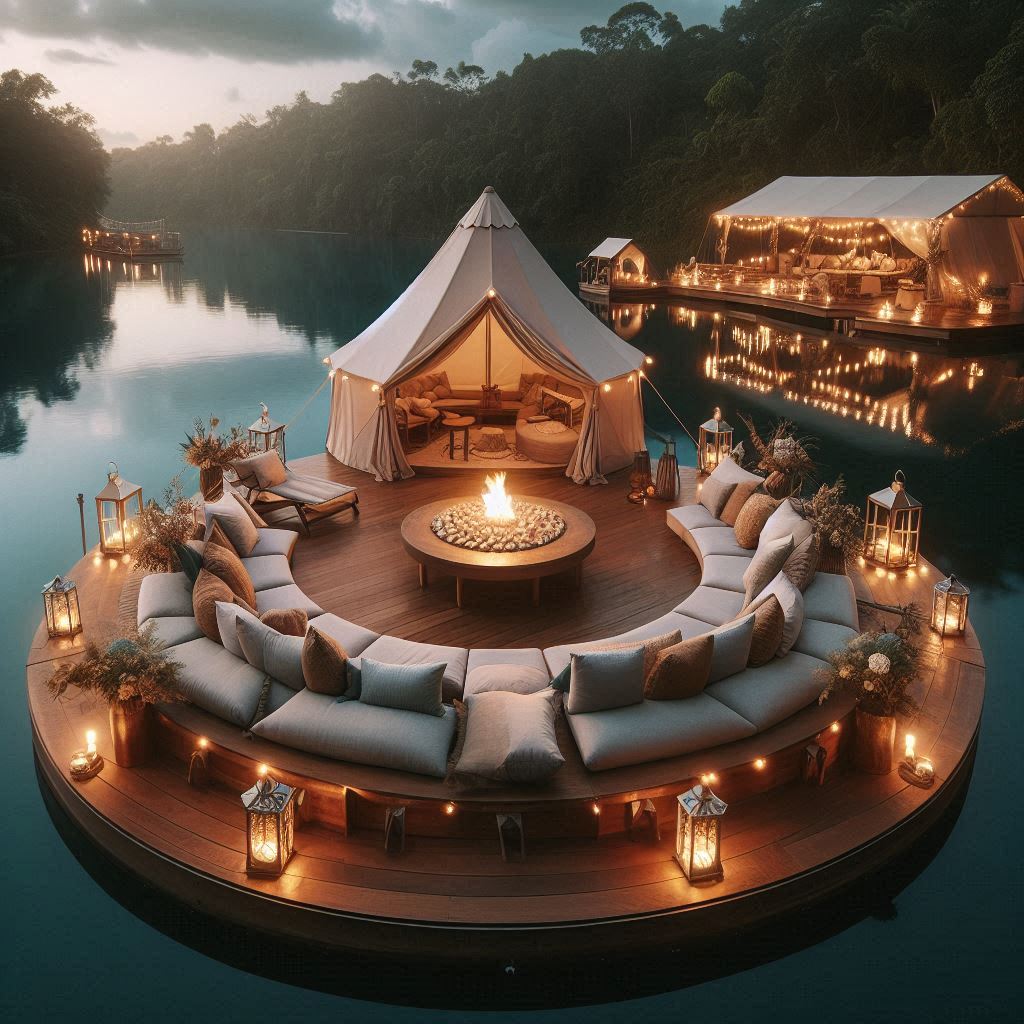
Essential cooking gear includes compact Floating Campsites stoves, cooking utensils, pots and pans, and food storage containers. Keep in mind that meals prepared outdoors can become a highlight of the trip; try to incorporate fresh, local ingredients whenever possible.
Don’t forget to pack a portable grill or fire pit for evening cookouts. Cooking over an open flame creates a wonderful communal atmosphere, providing a perfect opportunity to share stories and bond with fellow campers.
Sleeping Arrangements
Comfortable sleeping arrangements are key to a successful Floating Campsites experience. Depending on the type of setup, options may range from sleeping bags and air mattresses to cozy bedding inside a houseboat.
If camping on a raft or platform, consider investing in inflatable sleeping pads or hammocks to ensure a restful night’s sleep. Proper insulation is crucial, especially when nights get chilly or damp, so bring additional blankets or sleeping gear suited for varying weather conditions.
In addition to bedding, create a shelter to protect against insects and unforeseen weather. A well-ventilated tent can act as a barrier from bugs while still allowing Floating Campsites to enjoy the gentle sounds of the water.
Setting Up a Floating Campsite
Setting up a floating campsite requires careful consideration and planning to ensure a smooth experience. Selecting the right location, employing proper anchoring techniques, and creating a comfortable living space are essential steps to optimizing your floating adventure.
Choosing the Right Location
Selecting the right location for your Floating Campsites is critical. Look for areas with calm waters, ample space for anchorage, and proximity to desired activities, such as fishing, swimming, or exploring nearby shorelines.
Avoid camping too close to busy boating channels or areas with heavy currents, as they can pose safety risks. Consider factors such as shade, wind direction, and accessibility to resources, including fresh water or firewood, when choosing your spot.
Researching the area ahead of time can provide valuable information about potential hazards, wildlife, and regulations regarding Floating Campsites on water. Familiarize yourself with local rules and guidelines to ensure a responsible and safe camping experience.
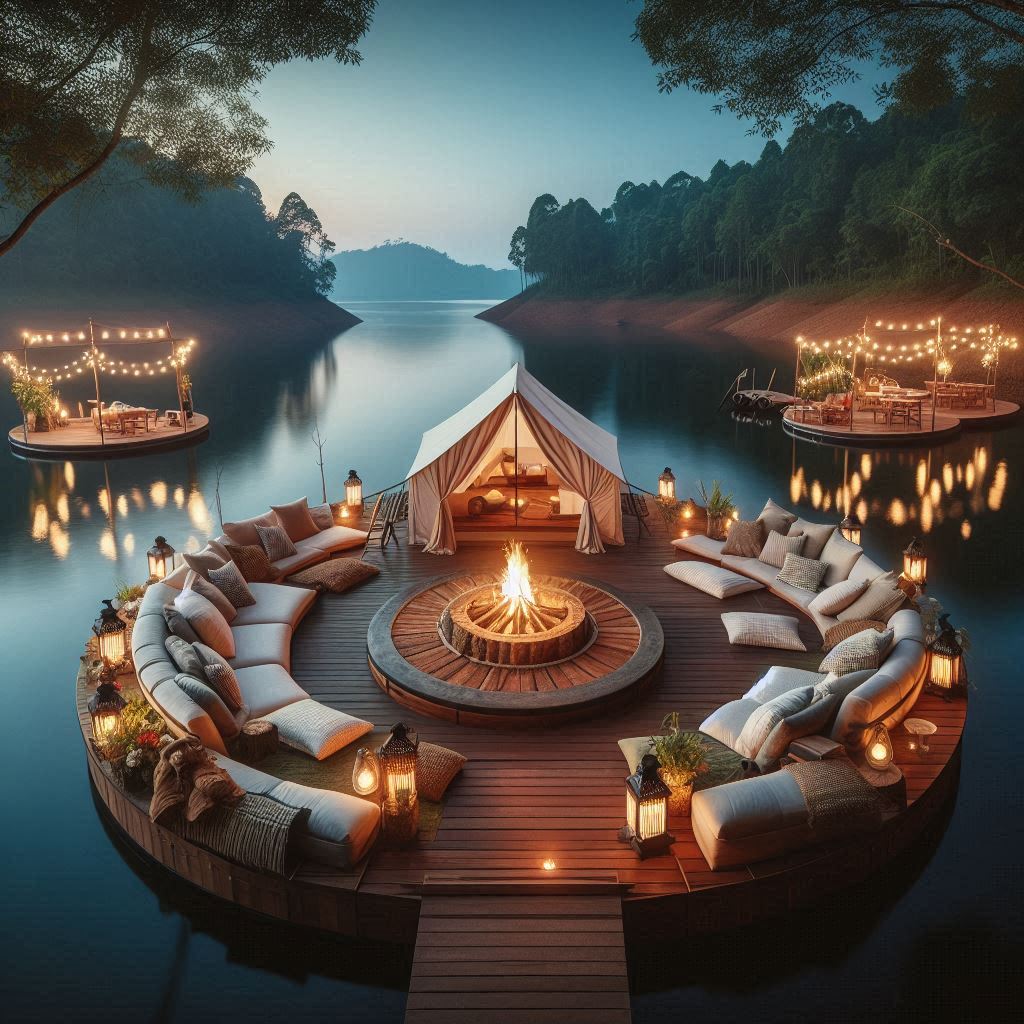
Anchoring Techniques
Once a suitable location has been identified, proper anchoring techniques must be employed to secure your floating campsites. Ensure that your raft, pontoon, or houseboat is firmly anchored to prevent drifting during the night or adverse weather conditions.
Utilize reliable anchoring systems that suit the type of vessel you are using. For houseboats, many come equipped with mooring systems, while rafts and smaller boats may require adjustable anchors or stakes secured to the bottom.
Regularly check the anchoring system and adjust as necessary, especially if strong winds or currents arise. It’s prudent to have backup anchors or Floating Campsites devices ready in case of emergencies.
Creating a Comfortable Living Space
Creating a comfortable living space at your floating campsite enhances the overall experience. Take advantage of the unique setting by arranging your gear to maximize view and accessibility.
Consider setting up seating areas that allow for easy conversation and relaxation while enjoying the surrounding beauty. Use lightweight furniture or cushions to create cozy outdoor lounges, inviting fellow campers to gather and unwind.
Adding personal touches to your floating campsite, such as colorful lanterns or decorative items, can enhance the ambiance. Finding ways to connect with nature while establishing a functional living space will provide a memorable camping experience.
Activities at Floating Campsites
Floating campsites offer numerous activities that cater to all interests, allowing campers to engage with their surroundings in fun and exciting ways.
Fishing Adventures
Fishing is often one of the primary draws to floating campsites. The ability to cast a line directly from your floating home offers unparalleled convenience and excitement.
Different water bodies host diverse fish species, making it worthwhile to learn about local fishing regulations and seasonal patterns. Whether targeting bass, trout, or catfish, floating campsites provide ample opportunities for anglers to reel in their catch while enjoying the peace of nature.
Consider coordinating fishing competitions with fellow campers for friendly rivalries and shared excitement. Whether you catch dinner or simply enjoy the process, fishing adventures add a delightful element to your floating camping experience.
Water Sports and Recreation
Floating campsites provide a launchpad for various water sports and recreational activities. Kayaking, paddleboarding, and tubing are just a few examples of what can be enjoyed while stationed on the water.
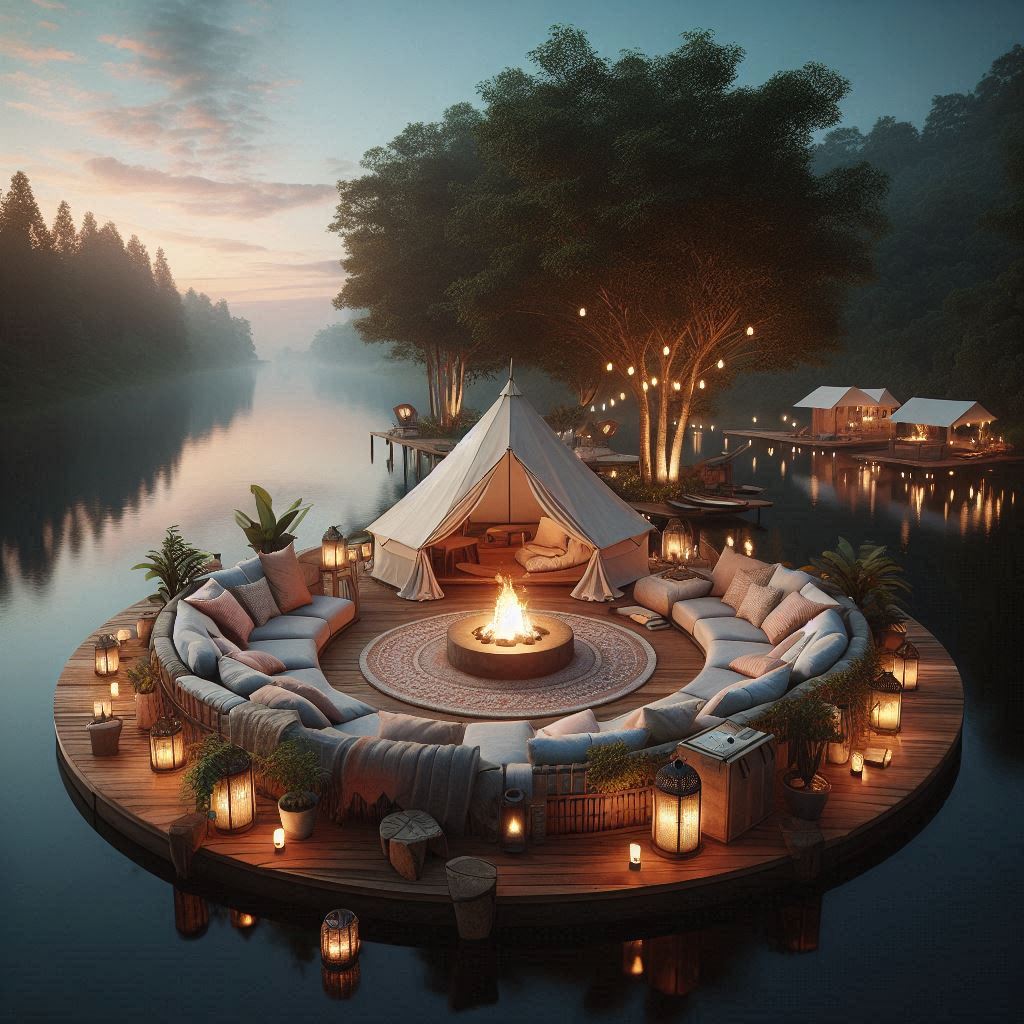
Kayaking and paddleboarding allow you to explore quieter coves and riverside landscapes, enabling a deeper understanding of the ecosystem. You might encounter wildlife, such as otters or herons, offering a unique glimpse into the lives of creatures residing near the water.
If you’re feeling adventurous, consider trying out wakeboarding or water skiing. These exhilarating activities create opportunities for adrenaline-pumping fun while getting you wet and wild in the water.
Stargazing and Nighttime Activities
As the sun sinks below the horizon, floating campsites transform into tranquil settings for stargazing and evening activities. With minimal light pollution, the celestial display becomes more vivid and inspiring.
Bring a telescope or binoculars to deepen your stargazing experience, or simply lay back on your floating platform and marvel at the beauty of the night sky. Identify constellations, planets, and meteor showers while sharing stories and laughter with fellow campers.
Nighttime activities can include storytelling, playing games, or roasting marshmallows around a small fire (if permitted). The ambiance created by flickering flames and the reflections on the water creates a magical environment for bonding and relaxation.
Environmental Considerations
Floating campsites provide a unique opportunity to connect with nature, but they also come with environmental responsibilities. Understanding how to minimize human impact and practice sustainable camping is crucial for protecting our natural resources for generations to come.
Minimizing Human Impact
When Floating Campsites on water, minimizing your impact on the environment is vital. This includes following Leave No Trace principles that advocate for responsible camping practices.
Always clean up after yourself. Pack out trash and dispose of waste properly, refraining from littering. Avoid damaging vegetation and sensitive habitats, especially in delicate aquatic ecosystems.
Be mindful of noise levels as well, as excessive noise can disrupt wildlife and diminish the natural ambiance of serene environments Floating Campsites. Respecting your surroundings contributes positively to the experience of future campers while preserving the integrity of the area.
Wildlife Conservation
Floating campsites often reside in ecologically rich areas with diverse wildlife populations. Respecting wildlife and adhering to conservation guidelines are essential for maintaining a harmonious balance between camping and nature.
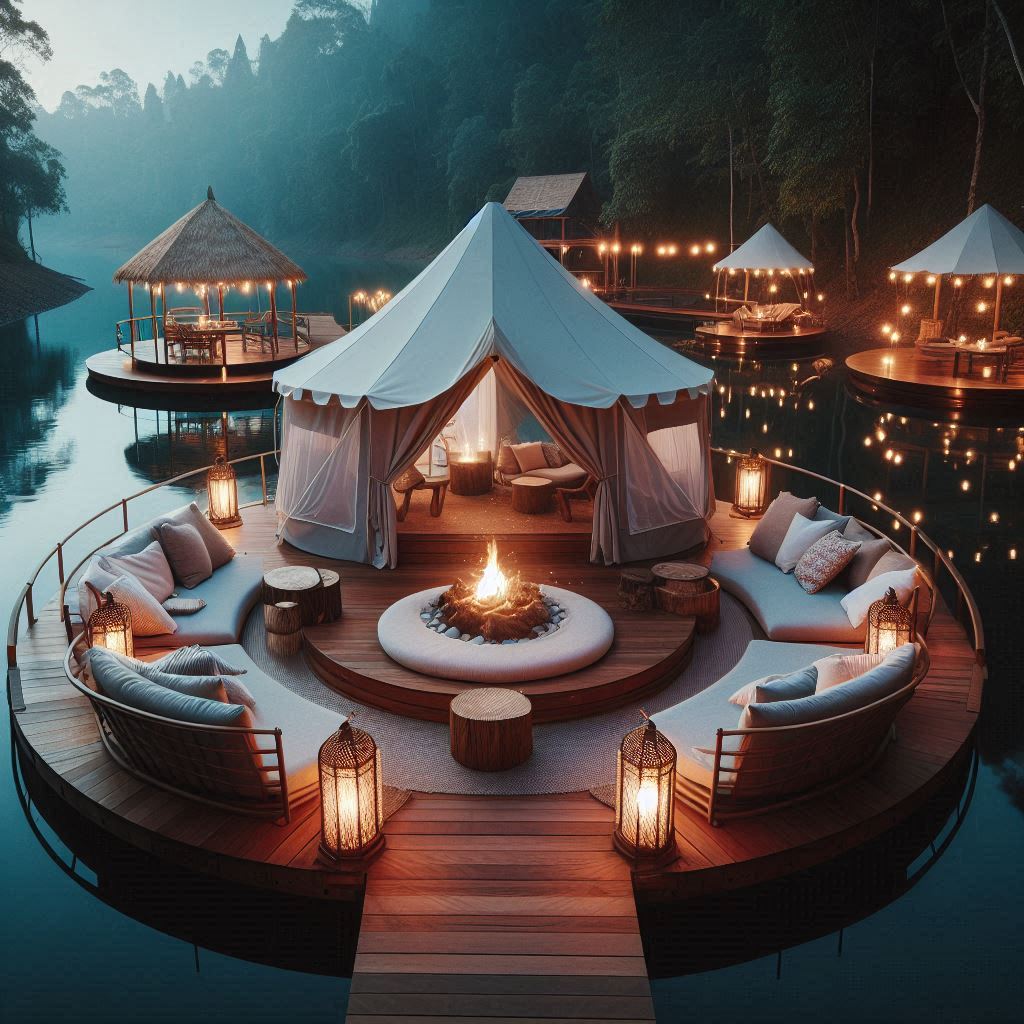
Do not feed wildlife, as it can harm their health and alter their natural behaviors. Observe animals from a distance and avoid encroaching on their habitats. Understanding the local wildlife and their habitats fosters a greater appreciation for the ecosystems you are immersed in.
Participating in local conservation initiatives can also enhance your commitment to preserving the environment Floating Campsites. Engage with organizations focused on protecting water bodies and promoting sustainable practices in local communities.
Sustainable Practices in Floating Camping
Adopting sustainable practices during your Floating Campsites trip can make a significant difference in environmental preservation. Start by opting for eco-friendly products, such as biodegradable soaps and reusable water bottles, to reduce waste.
Consider solar-powered lights or lanterns for nighttime illumination. Utilizing renewable energy sources minimizes reliance on fossil fuels and promotes responsible camping practices.
Encourage fellow campers to join in sustainability efforts, such as organizing clean-up events or sharing eco-friendly tips. Collective action strengthens the commitment to preserving natural spaces, ensuring future generations can enjoy the beauty of floating campsites.
Challenges of Floating Campsites
While floating campsites can be enchanting, they also come with challenges that campers must be prepared to face. Weather conditions, accessibility issues, and safety concerns are important factors to consider before embarking on this adventure.
Weather Conditions
Weather conditions can dramatically affect the floating camping experience. Rain, wind, or sudden storms can change the dynamics of your trip, potentially impacting safety and comfort.
Always check the weather forecast before heading out, and be prepared for unexpected changes Floating Campsites. Bringing appropriate gear, such as waterproof tarps and rain gear, can help mitigate discomfort during inclement weather.
Understanding how to secure your floating campsite during severe weather is equally important. If storms are expected, seek shelter or return to land if possible to ensure safety.
Accessibility Issues
Accessing floating campsites can present challenges, especially if they require transportation or navigating difficult environments. Some locations may not have nearby docking facilities, necessitating planning to haul gear and equipment.
Plan your route carefully, considering factors such as distance, terrain, and potential obstacles. Utilizing smaller vessels, such as kayaks or canoes, can make accessing remote floating campsites easier, particularly in narrow or winding waterways.
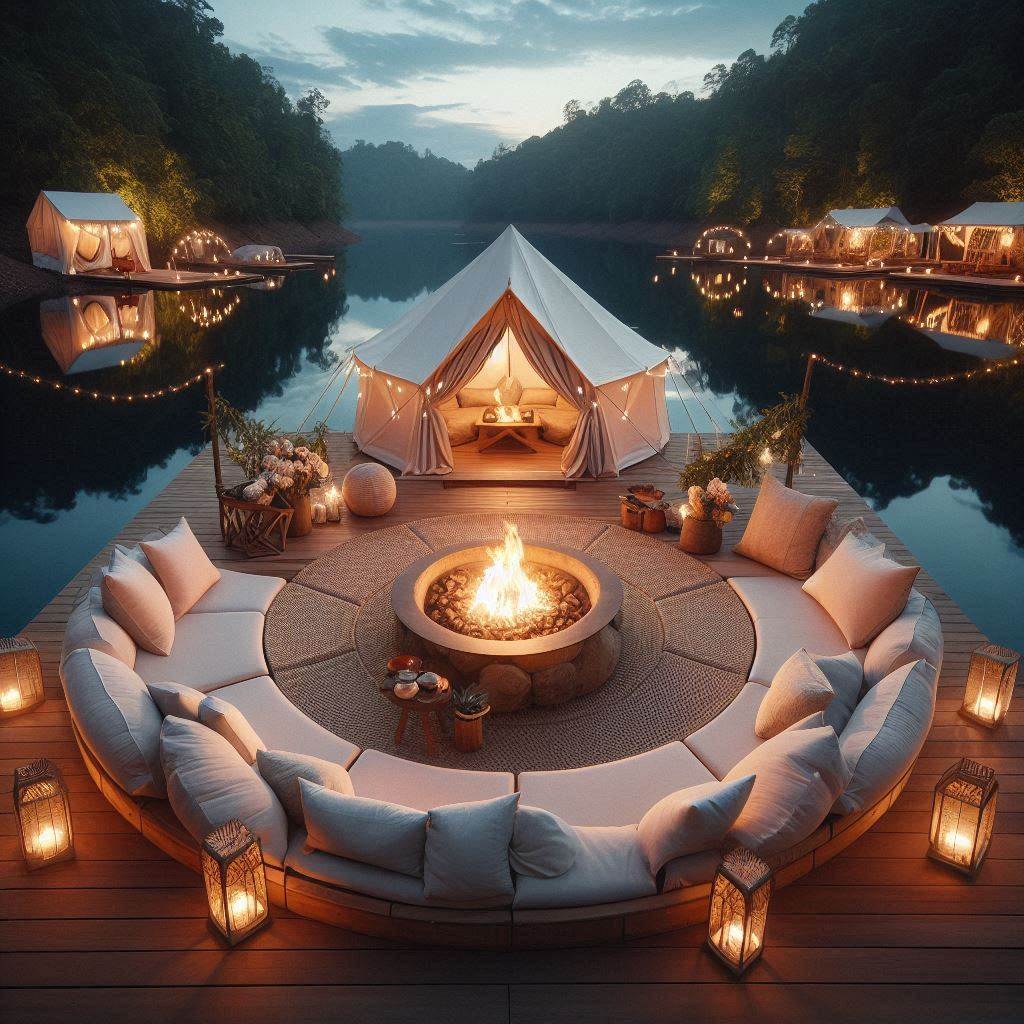
Ensure all participants are physically capable of handling their gear and navigating to the selected campsite. Engaging beginner-friendly locations may be beneficial for those new to floating camping.
Safety Concerns
Safety is paramount when camping on water. The inherent risks associated with floating campsites necessitate diligent attention to safety measures.
Ensure that everyone in your group understands basic water safety protocols, such as wearing life jackets, swimming skills, and awareness of hazardous conditions. Establishing clear communication signals is also essential for maintaining safety during activities.
Being aware of your surroundings, including potential wildlife encounters, ensures preparedness for any unexpected situations Floating Campsites. Have a plan in place for emergencies, including evacuation routes and contact information for local authorities.
Tips for First-Time Floating Campers
For first-time floating campers, preparing for a unique experience involves thoughtful planning and consideration of various factors. By understanding what to expect and preparing adequately, the transition into floating camping can be enjoyable and seamless.
Planning and Preparation
Begin by conducting thorough research on your chosen destination Floating Campsites. Learn about the specific regulations surrounding floating camping in that area, including permits, availability of resources, and local wildlife considerations.
Gather essential gear and equipment well in advance. Create a checklist to ensure nothing is overlooked, accounting for camping gear, safety equipment, cooking supplies, and personal items.
Consider the duration of your trip and the number of individuals joining you Floating Campsites. Coordination is crucial when packing collaboratively, as sharing resources can help reduce clutter and weight.
What to Expect
Floating camping offers a unique and dynamic environment compared to traditional camping. Be prepared for unexpected encounters with wildlife, changing weather conditions, and the possibility of movement due to waves or currents.
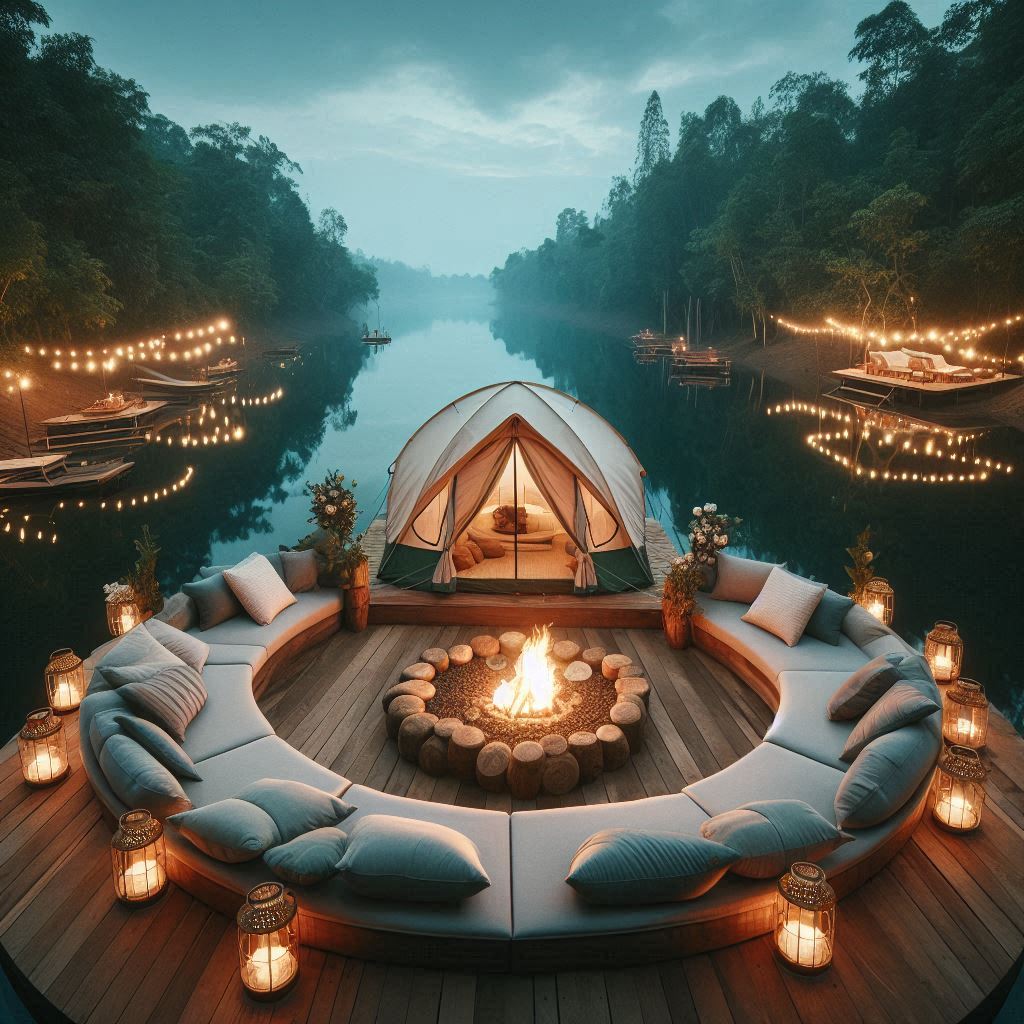
Each day presents opportunities for spontaneity and adventure, so remain flexible in your plans. Embrace the unique experiences that come with Floating Campsites, whether it’s discovering hidden coves or bonding with fellow campers around a campfire.
Accept that not everything may go as planned. Learning to adapt and problem-solve en route can enhance your camping experience and build resilience.
Common Mistakes to Avoid
First-time floating campers may encounter common pitfalls that can detract from their experience. To ensure a smoother outing, be mindful of these mistakes:
- Underestimating safety requirements: Always prioritize safety equipment, including life jackets and communication devices. Evaluate the capabilities of your group, and ensure everyone is equipped for water-based activities.
- Overpacking: Floating campsites limit storage capacity, making it essential to pack only what is necessary. Focus on lightweight and multifunctional gear to maximize space and efficiency.
- Ignoring weather forecasts: Failing to check weather updates can lead to dangerous situations. Stay informed about changing conditions and be prepared to modify plans accordingly.
- Not respecting the environment: Environmental stewardship is vital for sustainable camping. Follow Leave No Trace principles and adhere to local regulations to minimize your impact on nature.
Conclusion
Floating campsites present a captivating opportunity to escape the hustle and bustle of everyday life while reconnecting with nature. Offering unparalleled experiences that transcend traditional camping, these aquatic retreats embody the spirit of adventure, tranquility, and exploration.
From breathtaking lakesides to serene coastlines, floating campsites allow individuals to immerse themselves in diverse ecosystems while engaging in a range of activities. With proper preparation, respect for the environment, and a willingness to embrace spontaneity, campers can create lasting memories and forge meaningful connections with the natural world.
As you contemplate your next outdoor adventure, consider the allure of floating campsites—a unique escape into nature that awaits just beyond the shore.

